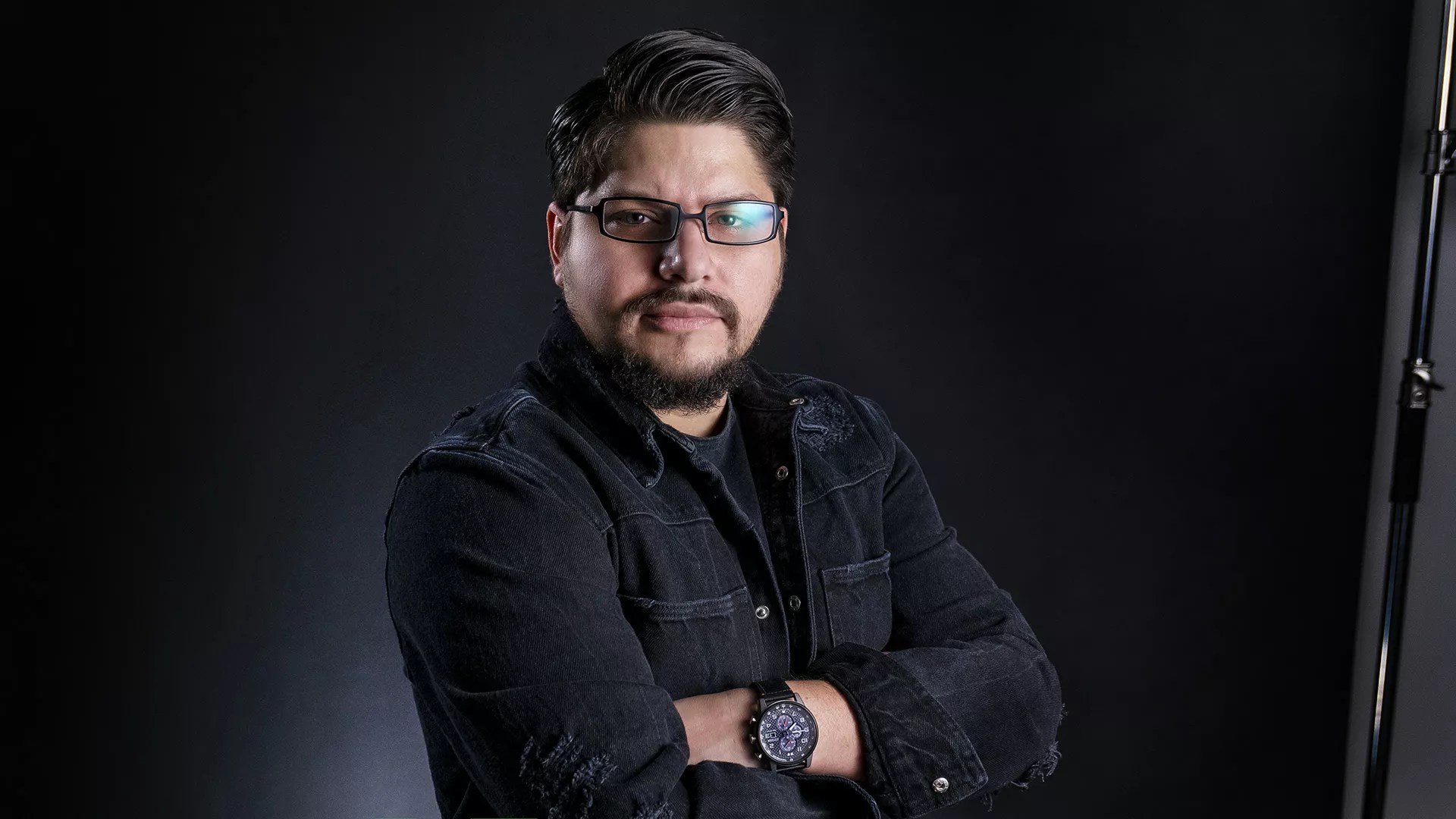
David McKay

Audio By Carbonatix
Six years ago, Dallas filmmaker Alex Kinter set out to make Poolside, a short film set in the 1950s. Starring Anne Beyer, it tells the story of a lonely, isolated high society housewife who starts to hear voices in her indoor swimming pool. The film was completed in early 2021 and is making the rounds on the festival circuit, earning prestigious selections at the Indie Short Awards Cannes and the Prague International Film Festival and collecting numerous laurels (Best Indie Short Film at The New York Movie Awards and Best Thriller Short at Indie Short Fest, to name a few). Yet the journey to bring the movie to audiences has been rife with tumult and heartbreak; it’s not simply a success story, but an example of an artist’s extreme perseverance when life interrupts moviemaking.
The initial challenges came with the production itself. Making a period film poses numerous hurdles, from obtaining music rights (in this case, to doo-wop tracks), to finding set pieces and costumes to fit the era.
“We spent a lot of time on the design to make sure it’s authentic, period-specific,” Kinter says.
Kinter also referenced classic movies such as Breakfast at Tiffany’s, North by Northwest, and Vertigo to get the right look.
The film’s key setting, the indoor swimming pool, proved to be an arduous location for shooting.
“It’s somewhat dangerous and risky to hover a camera over a pool that weighs a lot, costs a lot of money and also have lights all the way around it,” says the filmmaker, who in addition to co-directing, also served as the director of photography.
Kinter was prepared for these obstacles, having surrounded himself with film equipment ever since he took a photography class in high school. His passion for the medium brought him to Texas A&M to study art direction and photography and later harnessed his filmmaking chops by working on music videos and commercials in Dallas. He even started his own media company, Kinter Media, whose client list includes The Dallas Cowboys, TopGolf, and Mercedes-Benz.
Despite Kinter’s knowledge and experience with filmmaking gear, he understands it is simply a means to an end – what good is fancy equipment if it can’t serve a compelling narrative? Kinter holds storytelling in high regard and loves the way a well-spun yarn allows him to enter the world of another.
“It’s very therapeutic, I believe,” he says. “You can have really great quality, but to be able to tell the story is a whole different part of the game.”
Still, simply understanding the filmmaking process and having a great story cannot get a movie off the ground without trustworthy collaborators with whom to share the vision. Of everything Kinter has learned about moviemaking, perhaps he knows this best.
“Every film is like a mini-company,” he says. “Not everybody’s on your side. You gotta make sure that your circle’s real tight. Surround yourself with people that want similar things as you, but that don’t get jealous.”
For Poolside, he found the ideal collaborator in underground Dallas art figure Erik Schuessler, who wrote the script, co-directed the movie and provided the mid-century modern house in Oak Cliff where filming took place.
“Every film is like a mini-company. Not everybody’s on your side. You gotta make sure that your circle’s real tight. Surround yourself with people that want similar things as you, but that don’t get jealous.” – Alex Kinter
“We just kind of hit it off,” Kinter says of Schuessler. “He was like my brother. Once you get involved with someone on a film, you’re stuck with them for a couple of years. I found that with Erik seamlessly. I plunged into the depths of filmmaking with him.”
Once filming was completed in 2018, while Poolside was in post-production, Schuessler died from cancer. Filmmakers are prepared for logistical nightmares, long, arduous days on set and creative disputes; they’re not prepared to lose their friends and collaborators in the process.
“This was really sudden, really unexpected,” Kinter says. “He really gave it his all towards the end there. He was still working on the film with me over the last couple months. This was a big thing for him.”
Kinter also lost his father to cancer just a few months later. Not long after that, COVID stalled the film’s completion further.
“That’s why it’s been so tough getting it out there,” Kinter says with a melancholy laugh.
Art is often a response to tragedy, but when tragedy interrupted the artmaking itself, Kinter found the only option was to buckle down and complete the film, if for nothing else, to honor his friend and creative partner. He hopes the movie will get a chance to screen in Dallas (and admits his frustration over the recent delay of the Dallas International Film Festival to October). At the very least, he’d like to host a local screening of Poolside for friends and family as a tribute to Schuessler.
While Schuessler may not be here to see his work completed, it’s clearly in good hands with Kinter. After the film’s success, Kinter plans to continue telling Schuessler’s stories and seeking ways to bring more film to Dallas.
“If I do anything, it’s for that,” he says. “This wasn’t the only script. We had a long career ahead of us.”